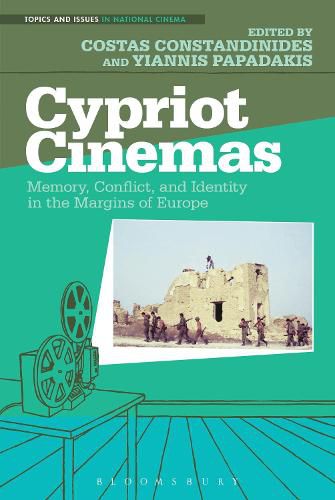Readings Newsletter
Become a Readings Member to make your shopping experience even easier.
Sign in or sign up for free!
You’re not far away from qualifying for FREE standard shipping within Australia
You’ve qualified for FREE standard shipping within Australia
The cart is loading…






Cyprus, the idyllic island of Aphrodite, is better known as a site of conflict and division between Greek Cypriots and Turkish Cypriots, rather than for its film production. Constandinides and Papadakis work to rectify this dearth of information by discussing the ouevre of filmmakers engaging with the island’s traumatic legacies: anti-colonial struggles, post-colonial instability, interethnic conflict, external interventions and war. Starting with the cinema of the 1960s, when the island became a republic, the collection focuses on the recent decades of filmmakers exploring issues of conflict, memory, identity, nationalism, migration and gender, as well as the work of filmmakers who chose to cooperate across the ethnic divide. Cypriot Cinemas utilizes a methodology that engages all necessary perspectives for an illuminating critical discussion: historical, theoretical and comparative (Greek Cypriot and Turkish Cypriot films in relation to regional film cultures/practices). While the volume develops a discussion based on the reading of the political in Cypriot films, it also looks at other film cultures and debates such as (s)exploitation films and transnational cinema.
$9.00 standard shipping within Australia
FREE standard shipping within Australia for orders over $100.00
Express & International shipping calculated at checkout
Cyprus, the idyllic island of Aphrodite, is better known as a site of conflict and division between Greek Cypriots and Turkish Cypriots, rather than for its film production. Constandinides and Papadakis work to rectify this dearth of information by discussing the ouevre of filmmakers engaging with the island’s traumatic legacies: anti-colonial struggles, post-colonial instability, interethnic conflict, external interventions and war. Starting with the cinema of the 1960s, when the island became a republic, the collection focuses on the recent decades of filmmakers exploring issues of conflict, memory, identity, nationalism, migration and gender, as well as the work of filmmakers who chose to cooperate across the ethnic divide. Cypriot Cinemas utilizes a methodology that engages all necessary perspectives for an illuminating critical discussion: historical, theoretical and comparative (Greek Cypriot and Turkish Cypriot films in relation to regional film cultures/practices). While the volume develops a discussion based on the reading of the political in Cypriot films, it also looks at other film cultures and debates such as (s)exploitation films and transnational cinema.